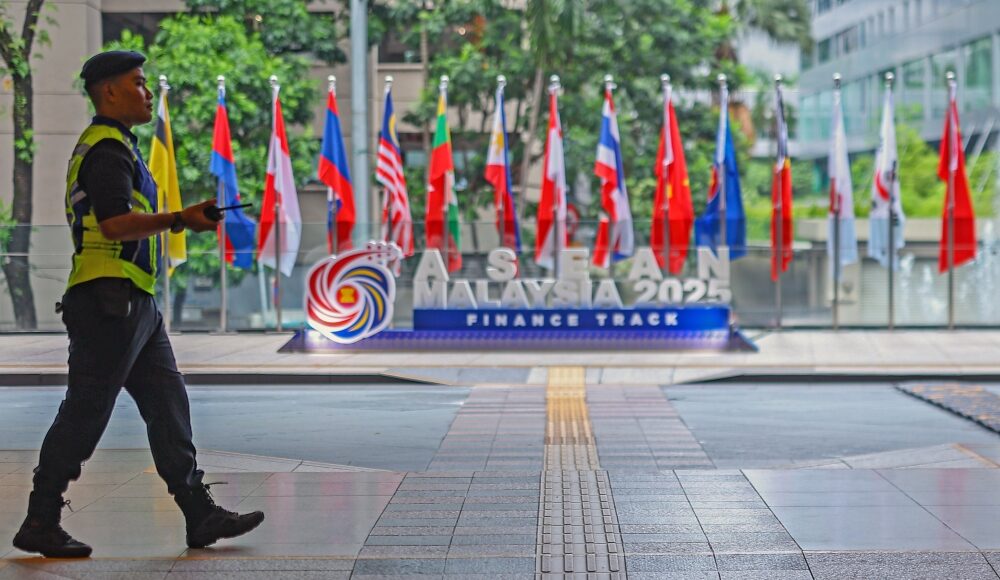MAY 12 — As Malaysia’s Prime Minister Anwar Ibrahim assumes the ASEAN chairmanship in 2025, the region stands at a precipice of geopolitical instability and economic weaponisation unseen since the interwar years. Yet rather than rallying ASEAN to seize this moment of collective assertion, former Singaporean diplomat Bilahari Kausikan has chosen, once again, to misrepresent bold regional leadership as strategic naiveté. His criticism of Anwar’s call for ASEAN to negotiate tariffs with Washington as a united bloc is not only diplomatically unhelpful — it is intellectually lazy.
Facile realism from a diplomatic pundit
Bilahari’s worldview, consistent with what one might call facile realism, views ASEAN as forever condemned to be a patchwork of national interests, incapable of strategic coherence. To him, collective negotiation equals futility; consensus equates to paralysis. But this is precisely the kind of diplomatic fatalism that has long prevented ASEAN from becoming the geopolitical force it could – and must – be.
It is deeply ironic that Bilahari criticises Anwar Ibrahim for proposing unity at the very moment when ASEAN needs it most. Donald Trump’s second term is not a rerun of his first — it is far worse. What we are witnessing is a White House weaponising tariffs as a form of economic extortion: not just against China, but against allies, partners, and American multinationals themselves.
Trump 2.0 is not about protecting American industry. It is about rent-seeking from every actor in the global economy, including Apple, Intel, and General Motors, all of whom are now pressured to “re-shore” while paying premiums to avoid tariff penalties. It is a coercive economic nationalism, turbocharged with populist anger and thinly veiled xenophobia.
The Hawley-Smoot analogy: Repeating economic tragedy
History offers a chilling parallel. The 1930 Smoot-Hawley Tariff Act, enacted during the early days of the Great Depression, raised US tariffs on more than 20,000 imported goods. What followed was a worldwide economic contraction, as countries retaliated, global trade collapsed, and geopolitical tensions rose. Even economists from the University of Chicago and Harvard condemned the act as self-defeating. Yet today, Trump’s policies eerily mimic that disastrous trajectory — with one difference: he is doing so in a hyper-globalised, hyper-interdependent world.
It is no surprise that even former and current Singaporean leaders – historically cautious in their critiques of US policy – have issued thinly veiled warnings about the implications of Trump’s tariff wars. In 2025, Prime Minister Lee Hsien Loong warned of “a more divided world,” while Deputy Prime Minister Lawrence Wong explicitly cautioned against “using economic tools as geopolitical weapons” in the same year.
Why then is Bilahari so eager to defend a transactional, zero-sum approach to global economics that even his own country’s leadership subtly rejects?
Malaysian Prime Minister Anwar Ibrahim’s call for ASEAN to approach Washington as a united tariff-negotiating bloc is a strategic necessity and anti-coercion as Trump will seek to divide and conquer, according to the author. — Bernama pic
ASEAN unity is not idealism — it is self-defence
Prime Minister Anwar Ibrahim’s call for ASEAN to approach Washington as a united tariff-negotiating bloc is not a dream—it is strategic necessity. If ASEAN nations negotiate separately, Trump will play them against each other, rewarding some, punishing others, and dividing supply chains at will. Unified negotiations offer a chance to resist these tactics and to present a common economic interest based on mutual respect and institutional coherence.
This is not anti-American. It is anti-coercion. In fact, many Americans themselves – particularly those in the Midwest, the Rust Belt, and parts of California – now suffer the consequences of Trump’s reckless economic nationalism. American farmers, small businesses, and exporters are among those with deep voter remorse, having realised that Trump’s tariffs did not protect them — they impoverished them.
Bilahari’s misplaced criticism reveals a colonial mindset
Bilahari’s criticism of Anwar Ibrahim reeks of an outdated colonial mentality — that Southeast Asian leaders must defer to Western economic aggression and speak only when spoken to. This mindset is a relic. The region is no longer a collection of post-colonial supplicants; it is a pivotal hub in global trade, with a population nearing 700 million and an economy poised to be the fourth-largest bloc by 2030.
Anwar’s vision is precisely what ASEAN needs: proactive, collective, and courageous diplomacy that positions the region as a normative actor, not a passive recipient of global chaos. The notion that ASEAN must forever cower in the shadows of great power competition is the kind of strategic resignation we can no longer afford.
Time to preen less, reflect more
Instead of clinging to cynical realism, Bilahari Kausikan should reflect on what kind of ASEAN we want to build. One that is permanently paralysed by its own diversity? Or one that, in moments of crisis, finds strength in collective clarity?
Prime Minister Anwar Ibrahim, with his deep moral conviction and grasp of geopolitical complexity, represents a path forward for ASEAN. Bilahari may prefer preening before microphones and rehearsing old strategic mantras, but the world has changed. It is time ASEAN changes too.
* Phar Kim Beng is professor of ASEAN Studies, International Islamic University Malaysia.
** This is the personal opinion of the writer or publication and does not necessarily represent the views of Malay Mail.





